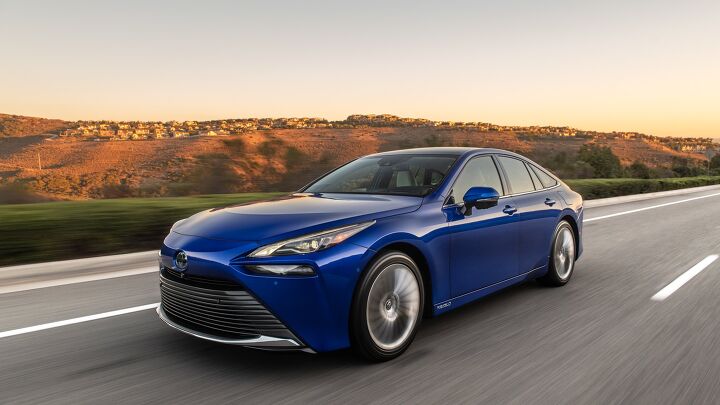Toyota's New CEO Confirms Hydrogen Remains a Priority

Toyota may have realized its mistake in moving so slowly on EVs, but the automaker isn’t taking its eyes off of other energy sources. Speaking at a recent motorsport event, Toyota’s new CEO said the company would continue to prioritize hydrogen as it moves forward with electrification.
CEO Koji Sato said Toyota wants to “ensure that hydrogen stays a viable option.” Even so, the automaker only sells one hydrogen vehicle in the United States, and only in California. At the same time, Sato admitted the company doesn’t have specific business or revenue goals attached to hydrogen.
Though Toyota is developing EVs and said it expects to move 3.5 million of them by the end of the decade, the automaker has always touted a multifaceted approach to reaching zero emissions. “We are making full-fledged efforts on everything,” Sato noted. “It is important to remain flexible in order to tailor products and energies to different carbon neutral needs in different markets.”
Toyota and Hyundai are currently the only two automakers offering hydrogen fuel cell vehicles in North America. The Toyota Mirai turns hydrogen into electricity for an electric motor that produces 182 horsepower. The Hyundai Nexo offers 161 horsepower. Both are exorbitantly expensive and are only on sale in California, the only state with fueling stations.
[Image: Toyota]
Become a TTAC insider. Get the latest news, features, TTAC takes, and everything else that gets to the truth about cars first by subscribing to our newsletter.

Chris grew up in, under, and around cars, but took the long way around to becoming an automotive writer. After a career in technology consulting and a trip through business school, Chris began writing about the automotive industry as a way to reconnect with his passion and get behind the wheel of a new car every week. He focuses on taking complex industry stories and making them digestible by any reader. Just don’t expect him to stay away from high-mileage Porsches.
More by Chris Teague


































Comments
Join the conversation
"Fools Cells" are 20 years into the future.
THe problem is, the clowns who cheerlead for them have been saying this for the last 20 years, and before that they claimed they are only TEN years into the future (in 1990. so they would dominate by... 2000).
Toyota Shareholders and workers will suffer because of the EGO of those damned fools execs who wasted TEN YEARS, letting TESLA dominate the BEV industry (of the FREE WORLD, China excluded).
“We are making full-fledged efforts on everything,”
• Interesting strategy
An acquaintance of mine 50+ years ago who was attending MIT (until General Hershey's folks sent him his "Greetings" letter) converted an Austin Mini from its staid 4 cylinder to an electric motored fuel cell vehicle. It was done as a project during his progression toward a Master Degree in Electrical Engineering. He told me it worked pretty well but wasn't something to use as a daily driver given the technology and availability of suitable components of the time. Fueling LH2 and LOX was somewhat problematic. Upon completion he removed his fuel cell and equipment and, for another project, reinstalled the 4 banger but reassembled it without mechanical fasteners using an experimental epoxy adhesive instead which, he said, worked much better and was a daily driver...for awhile. He went on to be an enlisted Reactor Operator on a submarine for a few years.
Doesn't it take electricity to make hydrogen? Why not just charge a battery. Seems like that would be more efficient & clean not factoring in all the pollution it takes to manufacture today's batteries. But maybe fuel cells are just as bad, not sure about that. A hydrogen vehicle is nothing more than an electric car where hydrogen gas & a fuel cell are used in place of a battery.